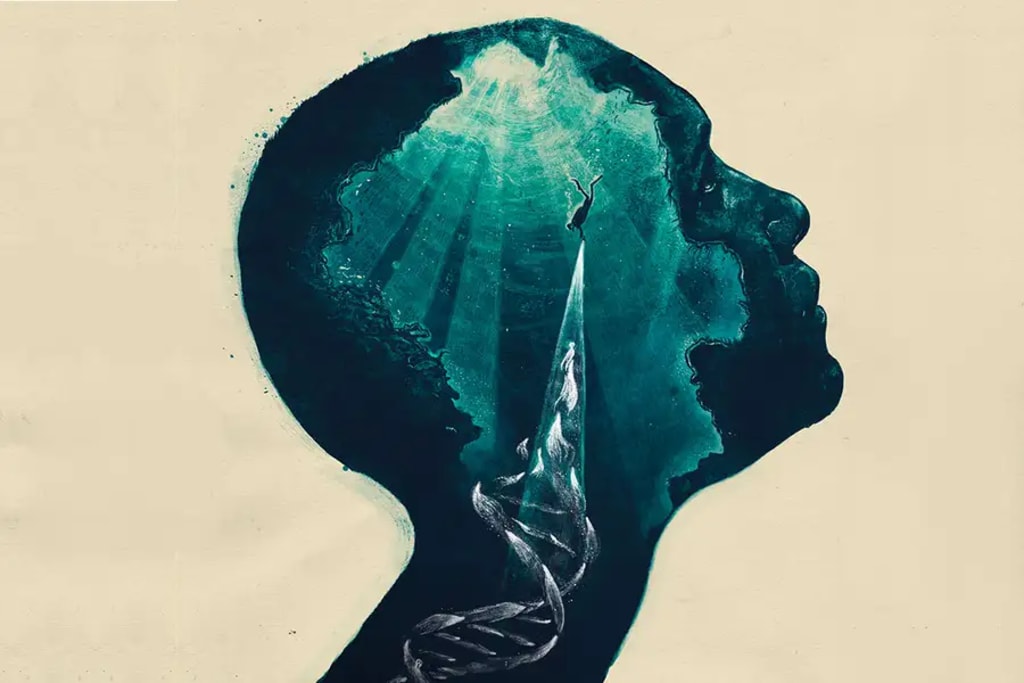Unravelling Human Uniqueness: The Enigma of Our Genetic Identity
From Genes to Junk: Unravelling the Genetic Enigma

Introduction:
In the quest to define what makes us human, we have explored various aspects of our existence, from our behaviours and cultures to our thoughts and inventions. Yet, the most profound answers may lie hidden within the blueprint of our very being - our DNA. Thanks to brilliant.org's support for PBS, we embark on an exciting journey to delve into the captivating world of genetics and unveil the elusive genetic differences that set us apart from our closest non-human relatives, the chimpanzees.
Genetics: The Key to Our Identity
Genetics, a burgeoning field, found its stride in the 1970s when scientists gained the ability to study individual DNA sequences. Initially, the focus was on genes, as they were believed to harbour the most significant disparities between humans and chimpanzees. However, with the completion of the Human Genome Project in 2000, a revelation upended our assumptions - our genes merely accounted for a mere 1-2% of the entire genome.
The Enigma of "Junk" DNA
The majority - 98-99% - of our genome was dismissed as non-coding "junk" DNA, considered to serve little or no purpose. Yet, this perception was challenged when scientists identified around 5% of the genome as conserved across vertebrates, indicating potential regulatory roles. These regions, known as Human Accelerated Regions (HARs), exhibited crucial distinctions between human and chimp genomes, particularly concerning genes linked to brain and nervous system development.
Unravelling Human Ancestor Quickly Evolved Regions (HACKERS)
The quest to decipher human uniqueness led researchers to explore the non-coding and non-conserved regions of the genome. Within this rapidly mutating "junk" DNA, they uncovered a fascinating treasure - Human Ancestor Quickly Evolved Regions (HACKERS). These genetic sequences emerged after our lineage diverged from chimpanzees but before parting ways with Neanderthals and Denisovans.
Decoding the HACKERS' Impact
Surprisingly, the 1600 HACKER sequences exerted significant influence on genes associated with the immune system, gut, and brain. This discovery provided evidence supporting the Expensive Tissue Hypothesis, which posits that our ancestors favoured larger brains over extensive guts due to energy constraints. This brain-gut connection played a pivotal role in shaping our human characteristics, setting us apart from our primate relatives.
The Complexity of Our Genetic Uniqueness
The journey to unlock human uniqueness through genetics proved more intricate than anticipated. The initial belief that genes solely accounted for our distinctions from chimps fell short. Instead, the revelation that non-coding DNA might play a critical role in regulating gene activity reshaped our understanding.
The Humbling Nature of Genetic Complexity
A humbling realisation emerged when we discovered that our genome contains fewer genes than seemingly simple organisms like grapes or water fleas. This observation challenged our perception of genetic complexity and compelled us to reevaluate the importance of non-coding DNA. It appears that our genetic distinctiveness does not solely rely on a vast amount of unique DNA but rather on the intricate and yet-to-be-fully-understood mechanisms governing DNA's function.
Conclusion:
The pursuit of what truly defines our humanity has been a captivating and enlightening journey. From an initial focus on genes to a realisation of the significance of non-coding DNA, each step has shaped our comprehension of our genetic identity. As we continue exploring the intricacies of our genome, we remain grounded, curious, and eager to unravel the mysteries that make us uniquely human. The road ahead is promising, and with each advancement, we draw closer to comprehending the essence of humanity inscribed within our genes.
In understanding the remarkable interplay between our genetic makeup and the complexity of what makes us human, we honour the researchers and scientists who have dedicated their efforts to unravelling the enigma of our genetic identity. Through their endeavours, we gain a deeper appreciation for the beauty and intricacy of life, and our quest to understand what sets us apart from our fellow creatures remains an awe-inspiring journey of discovery.
About the Creator
Rohit Singh
Software developer, part-time content creator, and tech enthusiast.
Unleashing creativity and embracing tech. Join me on this thrilling journey! 🚀






Comments
There are no comments for this story
Be the first to respond and start the conversation.